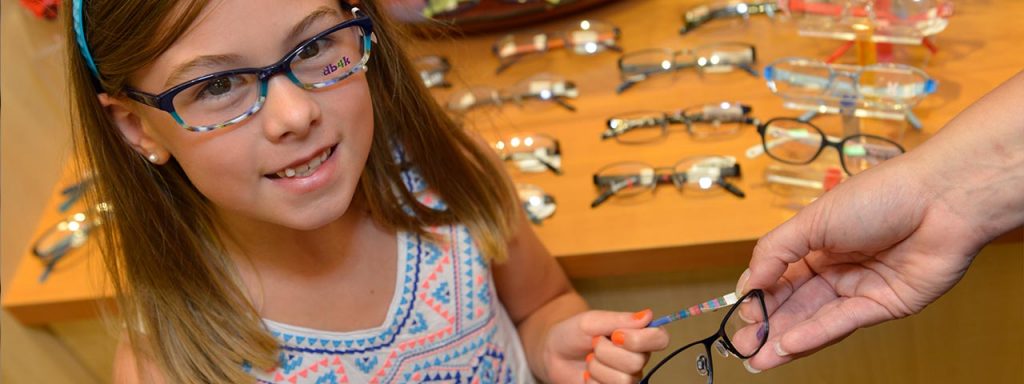
Dr. Hangartner Answers Your Questions About Pediatric Eye Care
1) From what age should a parent be bringing in their children for an eye exam?
- A child’s first eye exam is ideally through the InfantSee program, which is an exam at no cost for babies between 6-12mos of age. Both Dr. Williams and Dr. Hangartner are InfantSee providers because we believe strongly in catching any vision or ocular issues early! If all is well at the InfantSee exam, we recommend the next visit at 3 years of age and then again before starting school.
2) Why is it important to bring a child in at such a young age?
- Children are visual learners - 80% of what we learn are through visual cues! Furthermore, kids don’t know if what they are seeing is “normal” or not, so they won’t tell you they can’t see. There are also plenty of issues that can arise with using your eyes together as a team and trouble focusing that can impact learning, which would otherwise not be caught if just reading a line of letters at a vision screening.
3) What is the difference in terms of the examination process when you are checking the eyes of young children?
- In adults, combining your input with what we as doctors are seeing to find the best balance for you. In children, we find that balance by the doctor checking things a couple different ways instead of relying on the child’s responses.
4) Are there any signs that parents should be looking out for that would point them to making an appointment with their optometrist?
- Of course, there are the more obvious signs, like squinting or your child telling you they can’t see when they sit in the back of the room that should raise some flags. However, more subtle issues like getting headaches and having trouble staying focused on a task can also be signs of vision disorders.
5) Do you find that some parents can express hesitancy in bringing in young children? What causes that hesitation?
- Most parents don’t hesitate to bring their children in, they just don’t realize they should! Many people assume that if they have great vision, their children will as well, which is not always the case. Also, many people don’t realize that we have ways to evaluate vision without relying on responses to “which is better, 1 or 2?” Therefore we can check vision on young kids long before we can get reliable responses from them!
6) How does school play a role in this?
- School plays a big role in this. Not only do kids need to be able to physically see the board, their books, and their homework, but they also need to be comfortable while doing those activities. If they are straining to see, their lack of focus or cooperation may be misdiagnosed as ADHD. If we can improve classroom and home issues in a child with glasses instead of medications, I personally feel that is the best case scenario for everyone!
7) Do you have issues with children that are shy or intimidated in the office, and how do you work with that?
- Our doctors are very comfortable with children and work hard to gain the child’s trust by talking to them and finding something they relate to. Some children are ok with everything as long as they are informed about what we are doing, which we’re happy to explain in a way they can understand.
8) Can you recall any particular story of a child that came into your office, in which you were able to detect an issue early on and therefore make a difference in that child's eye health?
- Many of our patients have seen the video we posted on our Facebook page last year of a baby who was found to be extremely farsighted at an InfantSee exam. His family and those who care for him at daycare noticed a HUGE difference in his demeanor once he received his glasses. I’m happy to report that due to the early intervention, he is doing fantastic one year later!

